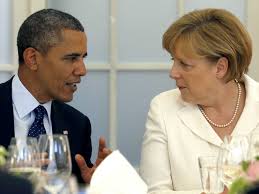Canada has used diplomatic facilities abroad to house electronic eavesdropping operations allied with American global surveillance programs, according to a recently leaked U.S. document.
A slide presentation leaked to Germany’s Der Spiegel magazine suggests that Communications Security Establishment Canada (CSEC) took part in a broader U.S.-led effort known as “Stateroom” that collect “SigInt” (signals intelligence) from secret installations inside embassies and consulates. Such spying often takes place without the knowledge of the diplomats posted to these missions, the document says.
Canada has used diplomatic facilities abroad to house electronic eavesdropping operations allied with American global surveillance programs, according to a recently leaked U.S. document.
A slide presentation leaked to Germany’s Der Spiegel magazine suggests that Communications Security Establishment Canada (CSEC) took part in a broader U.S.-led effort known as “Stateroom” that collect “SigInt” (signals intelligence) from secret installations inside embassies and consulates. Such spying often takes place without the knowledge of the diplomats posted to these missions, the document says.
CSEC could not immediately respond to questions about the leaked document, but generally says it does not break Canadian laws and that it cannot comment on the methods that it uses to collect foreign intelligence.
The document recording Canada’s participation in “Stateroom” was published this week by Der Spiegel magazine in a broader piece about U.S. spying in Germany. The report focused on evidence that Chancellor Angela Merkel’s mobile phone was targeted for surveillance. The disclosure has prompted German officials to openly mull expelling U.S. diplomats.
Relying “mostly” on leaked NSA documents from former U.S. contractor Edward Snowden, Der Spiegel published a leaked “Stateroom Guide” glossary that directly referenced CSEC. On Monday, Canadian blogger Bill Robinson drew attention to the passage on his “Lux Ex Umbra” intelligence blog.
“STATEROOM sites are covert SIGINT collection sites located in diplomatic facilities abroad,” the leaked document says. “SIGINT agencies hosting such sites include … Communication Security Establishments or CSE (at Canadian diplomatic facilities).”
No locations are given for the alleged CSEC outposts in embassies abroad.
The leaked U.S. document goes on to says that such surveillance equipment is concealed – “in false architectural features or roof maintenance sheds” –– and that such operations are highly compartmentalized. “They are covert, and their true mission is not known by the majority of diplomatic staff at the facility where they are assigned.”
Similar sites are run by the U.S. National Security Agency’s “SCS” or special collection services wing, Britain’s Government Communications Headquarters or GCHQ, and Australia’s Defence Signals Directorate, according to the leaked document.
Many of the NSA presentations that have leaked over the past five months have served to reinforce how much these four agencies and their New Zealand counterpart – known collectively as “the Five Eyes” intelligence alliance of English-speaking countries – have been collaborating.
Earlier this month, a leaked CSEC presentation showed that the Canadian agency had been working in collaboration with its Five Eyes partners to scout out Brazil’s energy ministry – by studying flows of telecommunications traffic in order to isolate the most promising computer servers and mobile phones to mine for intelligence leads. (It is not clear whether any subsequent hacking operations did, in fact, take place.)
Such practices have long been suspected. In 1995, a CSEC whistleblower wrote a tell-all book describing how he set up just such listening posts, but they are never publicly acknowledged by government officials.
“It’s not surprising, but it is certainly significant that it is disclosed,” said Wesley Wark, a University of Toronto professor who specializes in intelligence matters. “…There is still great value in having close access to telecommunications around the world, particularly if you are interested in cellphone communications.”
Mr. Wark pointed out that Canada could have capabilities the other Five Eyes allies might lack – such as Canada’s longstanding diplomatic presence in Iran, where a U.S. embassy has not operated for more than 30 years. (Last year, Foreign Minister John Baird pulled all of Canada’s diplomats out of Iran,)
Mr. Wark added that the fallout from the new disclosure will likely be minimal – unless CSEC technicians were to get caught running a specific eavesdropping operation in a specific embassy.
Then, “Canada might find itself in the NSA’s shoes,” he said.
Canada involved in U.S. spying efforts abroad, leaked document says
Colin Freeze





























Laissez un commentaire Votre adresse courriel ne sera pas publiée.
Veuillez vous connecter afin de laisser un commentaire.
Aucun commentaire trouvé